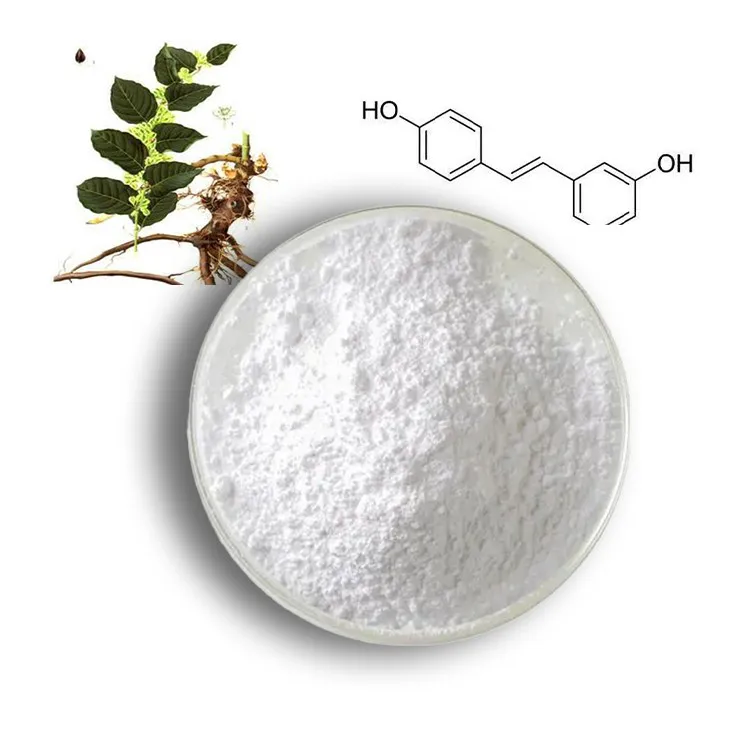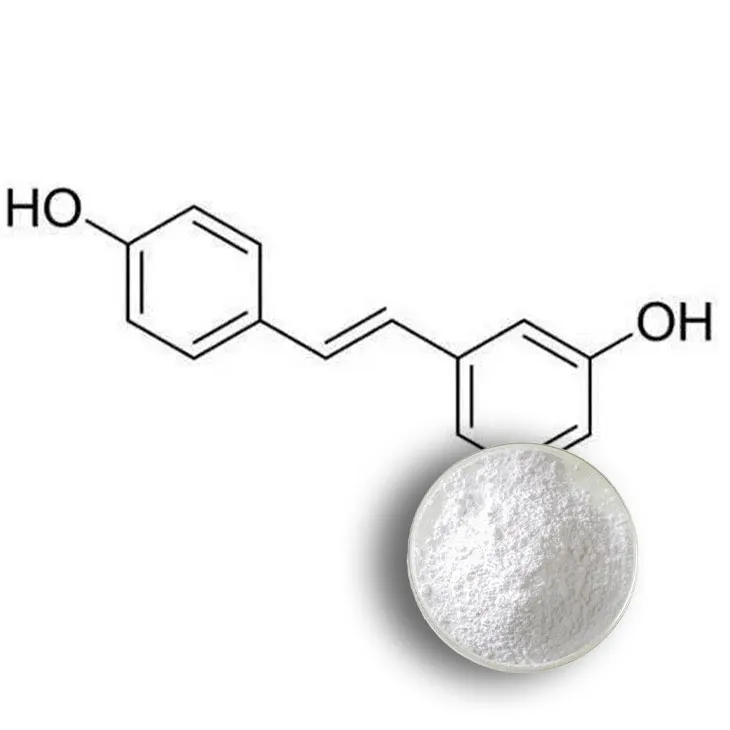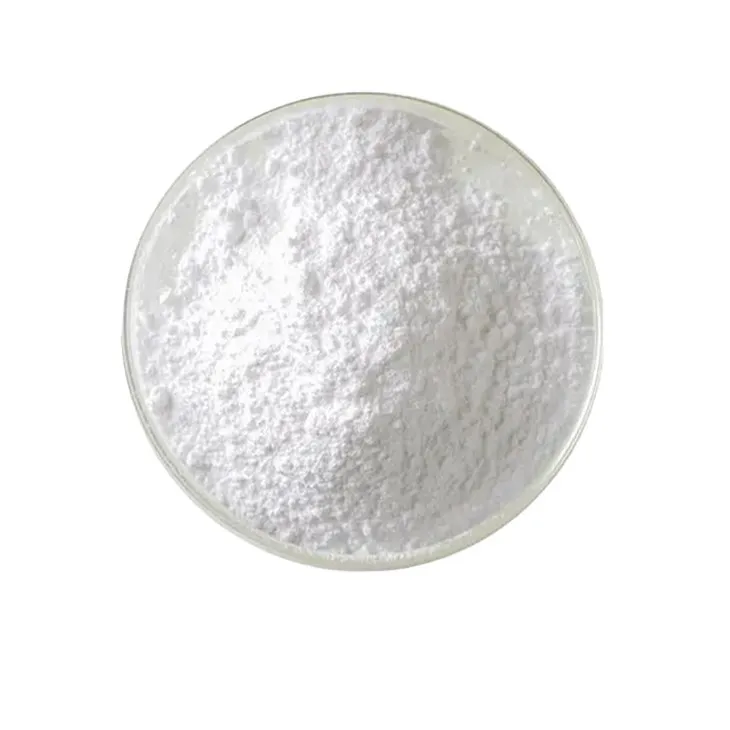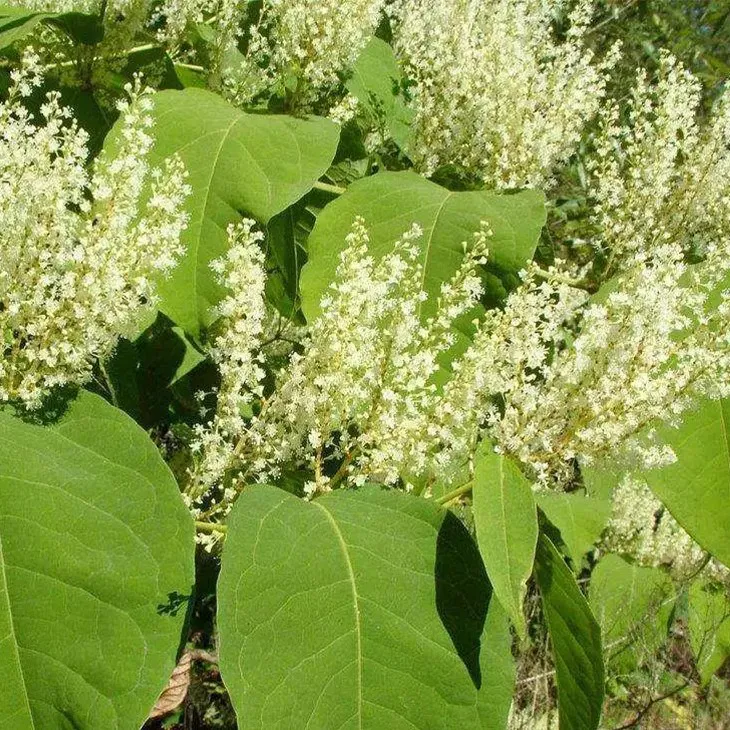- 0086-571-85302990
- sales@greenskybio.com
The Magic of Resveratrol Extract Powder: A Comprehensive Guide
2024-11-12

1. Introduction
Resveratrol extract powder, particularly the white form, has been the subject of much scientific and consumer interest in recent years. This compound, which is found naturally in certain plants, has shown a wide range of potential benefits. From its role in cellular protection to its applications in skincare and dietary supplements, resveratrol is a substance full of intrigue.

2. The Scientific Basis of Resveratrol
2.1 Cellular Protection
Resveratrol has been shown to play a significant role in cellular protection. One of the key mechanisms is its antioxidant activity. Cells in the body are constantly exposed to oxidative stress, which can be caused by factors such as environmental pollutants, radiation, and normal metabolic processes. Oxidative stress can lead to the production of free radicals, which are highly reactive molecules that can damage cellular components such as DNA, proteins, and lipids.
Resveratrol acts as an antioxidant by scavenging these free radicals, thereby reducing the damage they can cause. In addition, resveratrol has been found to activate certain cellular defense pathways. For example, it can upregulate the expression of antioxidant enzymes such as superoxide dismutase (SOD) and catalase, which further enhance the cell's ability to combat oxidative stress.
2.2 Anti - aging Effects
The anti - aging properties of resveratrol are closely related to its cellular protection mechanisms. Aging is a complex process that is associated with the accumulation of cellular damage over time. By protecting cells from oxidative stress and other forms of damage, resveratrol may slow down the aging process.
Resveratrol has also been shown to affect certain cellular processes that are involved in aging. For instance, it can modulate the activity of sirtuins, a family of proteins that are involved in regulating cellular metabolism, DNA repair, and lifespan. Activation of sirtuins by resveratrol may contribute to the maintenance of cellular homeostasis and the extension of lifespan in certain organisms.

3. Resveratrol in Skincare
3.1 Anti - inflammatory Properties
In skincare, Resveratrol extract powder offers several benefits. One of the most important is its anti - inflammatory effect. Skin inflammation can be caused by a variety of factors, including exposure to UV radiation, allergens, and pollutants. Inflammatory skin conditions can lead to redness, swelling, itching, and premature aging.
Resveratrol can inhibit the production of pro - inflammatory cytokines, which are signaling molecules that play a key role in the inflammatory response. By reducing inflammation, resveratrol can help soothe irritated skin, reduce redness, and improve the overall appearance of the skin.
3.2 Antioxidant Defense for the Skin
As mentioned earlier, resveratrol is a powerful antioxidant. In the context of skincare, this antioxidant activity is crucial for protecting the skin from oxidative damage. The skin is constantly exposed to environmental oxidants, such as UV - induced free radicals. These oxidants can cause damage to the skin cells, leading to the breakdown of collagen and elastin, which are essential for maintaining skin elasticity and firmness.
By scavenging free radicals, resveratrol can help prevent this damage and keep the skin looking youthful. It can also enhance the skin's natural antioxidant defense system, making it more resistant to future oxidative stress.
3.3 Skin Whitening and Brightening
Another potential benefit of resveratrol in skincare is its ability to promote skin whitening and brightening. Resveratrol can inhibit the activity of tyrosinase, an enzyme that is involved in the production of melanin. Melanin is the pigment that gives color to the skin, and excessive melanin production can lead to hyperpigmentation, such as dark spots and uneven skin tone.
By inhibiting tyrosinase, resveratrol can help reduce melanin production and promote a more even skin tone. This can result in a brighter, more radiant complexion.

4. Resveratrol in Dietary Supplements
4.1 Health Benefits
Resveratrol is often included in dietary supplements due to its potential health benefits. In addition to its antioxidant and anti - aging effects, resveratrol has been studied for its role in cardiovascular health. It may help reduce blood pressure, improve blood lipid profiles, and prevent the formation of blood clots.
Some research has also suggested that resveratrol may have anti - cancer properties. It may be able to inhibit the growth and spread of cancer cells by various mechanisms, such as inducing apoptosis (programmed cell death) and inhibiting angiogenesis (the formation of new blood vessels that supply tumors).
4.2 Dosage and Safety
When considering resveratrol as a dietary supplement, it is important to understand the appropriate dosage and safety considerations. The optimal dosage of resveratrol may vary depending on factors such as age, gender, and overall health status. In general, most studies have used doses ranging from 50 - 500 mg per day.
Regarding safety, resveratrol is generally considered safe for most people when taken at appropriate doses. However, some people may experience mild side effects such as gastrointestinal discomfort, especially at higher doses. Pregnant and breastfeeding women should consult their healthcare providers before taking resveratrol supplements.

5. Sources of Resveratrol
5.1 Natural Sources
Resveratrol is found naturally in several plants. One of the most well - known sources is grapes, especially in the skins and seeds. Red wine, which is made from grapes, also contains resveratrol, although the amount can vary depending on factors such as the grape variety, winemaking process, and storage conditions.
Other natural sources of resveratrol include berries such as blueberries, cranberries, and raspberries, as well as peanuts. However, the concentration of resveratrol in these natural sources may be relatively low, which is why Resveratrol extract powder has become a popular option for those seeking to obtain higher amounts of this compound.
5.2 Production of Resveratrol Extract Powder
The production of resveratrol extract powder involves several steps. First, the plant material (such as grape skins or seeds) is collected and processed. This may involve extraction methods such as solvent extraction, which uses solvents like ethanol or methanol to extract the resveratrol from the plant material.
After extraction, the resulting solution is purified to remove impurities and other unwanted compounds. The purified resveratrol is then dried and powdered to produce the final resveratrol extract powder product. Quality control measures are important during the production process to ensure the purity and potency of the final product.
6. Resveratrol and the Future
6.1 Ongoing Research
Research on resveratrol is ongoing, with scientists exploring new potential applications and mechanisms of action. For example, there is increasing interest in the role of resveratrol in neurodegenerative diseases such as Alzheimer's and Parkinson's. Some studies suggest that resveratrol may be able to protect neurons from damage and improve cognitive function.
There is also research into the potential of resveratrol in metabolic disorders such as diabetes. Resveratrol may help regulate blood sugar levels and improve insulin sensitivity, although more research is needed to fully understand these effects.
6.2 Market Trends
The market for resveratrol - based products, including skincare products and dietary supplements, is growing. Consumers are becoming more aware of the potential benefits of resveratrol, and this is driving demand for products containing this compound. As a result, more companies are investing in the research and development of resveratrol - based products, and new product formulations are emerging.
7. Conclusion
In conclusion, resveratrol extract powder is a remarkable substance with a wide range of potential benefits. Its scientific basis in cellular protection and anti - aging, along with its applications in skincare and dietary supplements, make it an area of great interest. As research continues and the market for resveratrol - based products expands, we can expect to learn more about this compound and its potential to improve human health and well - being.
FAQ:
What is resveratrol extract powder?
Resveratrol extract powder is a compound that is typically derived from plants, such as grapes. It contains resveratrol, which is a polyphenol with various beneficial properties.
How does resveratrol extract powder contribute to cellular protection?
Resveratrol extract powder can contribute to cellular protection through several mechanisms. It has antioxidant properties, which means it can neutralize free radicals that can damage cells. It may also regulate certain cellular processes and gene expressions that are related to cell survival and function.
Can resveratrol extract powder really slow down the aging process?
There is evidence to suggest that resveratrol extract powder may have anti - aging effects. Its antioxidant and anti - inflammatory properties can help reduce oxidative stress and inflammation, which are associated with aging. Additionally, it may affect certain cellular pathways related to aging, such as those involved in mitochondrial function and sirtuin activation.
How is resveratrol extract powder used in skincare?
In skincare, resveratrol extract powder can be used in various ways. It can be added to creams, lotions, and serums. Its antioxidant properties can help protect the skin from environmental damage, such as UV radiation. It may also help improve skin texture, reduce wrinkles, and enhance skin elasticity.
What are the benefits of taking resveratrol extract powder as a dietary supplement?
As a dietary supplement, resveratrol extract powder may offer several benefits. It may support heart health by reducing cholesterol levels and improving blood vessel function. It may also have anti - cancer properties, although more research is needed in this area. Additionally, it may help boost the immune system and improve cognitive function.
Related literature
- Resveratrol: A Review of Its Anti - Aging and Disease - Preventing Properties"
- "The Role of Resveratrol in Skincare: Current Evidence and Future Perspectives"
- "Resveratrol as a Dietary Supplement: Health Benefits and Safety Considerations"
- ▶ Hesperidin
- ▶ citrus bioflavonoids
- ▶ plant extract
- ▶ lycopene
- ▶ Diosmin
- ▶ Grape seed extract
- ▶ Sea buckthorn Juice Powder
- ▶ Beetroot powder
- ▶ Hops Extract
- ▶ Artichoke Extract
- ▶ Reishi mushroom extract
- ▶ Astaxanthin
- ▶ Green Tea Extract
- ▶ Curcumin Extract
- ▶ Horse Chestnut Extract
- ▶ Other Problems
- ▶ Boswellia Serrata Extract
- ▶ Resveratrol Extract
- ▶ Marigold Extract
- ▶ Grape Leaf Extract
- ▶ blog3
- ▶ blog4
- ▶ blog5
-
Organic Tongkat Ali extract powder factory.
2024-11-12
-
How to make powder with ashwagandha extract.
2024-11-12
-
Rosehip extract manufacturers from China.
2024-11-12
-
The best cat's claw extract in nature.
2024-11-12
-
Chinese Dandelion Leaf Extract Suppliers.
2024-11-12
-
Black Rice Extract
2024-11-12
-
Resveratrol extract
2024-11-12
-
Plantain extract
2024-11-12
-
Purple Sweet Potato Extract
2024-11-12
-
Konjac Powder
2024-11-12
-
Withania Somnifera Extract
2024-11-12
-
Berberis aristata Extract
2024-11-12
-
White Peony Extract
2024-11-12
-
Artichoke Extract
2024-11-12
-
Ginseng Root Extract
2024-11-12




















